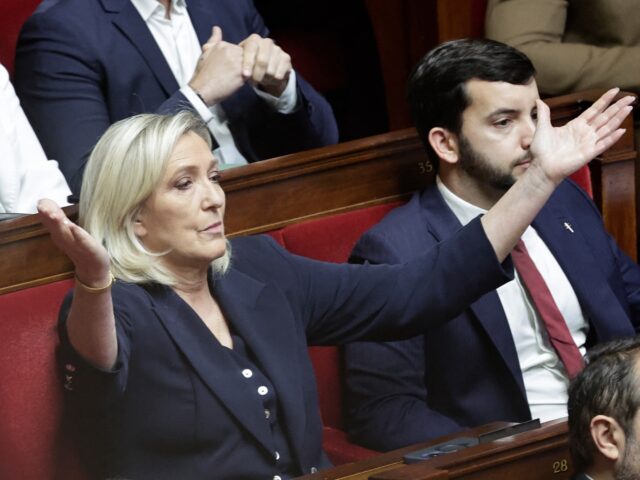
The neo-liberal French government is likely headed toward collapse this week after Marine Le Pen’s National Rally confirmed that it would join with the left on a motion of no confidence after Prime Minister Michel Barnier attempted to push through financial austerity measures through without a vote in the parliament.
After weeks of negotiations, Prime Minister Michel Barnier turned to a controversial legal loophole in the French constitution, article 49.3, which allows his government to pass through effective cuts to social security benefits without a vote in the National Assembly.
Barnier, the former EU Brexit negotiator, was installed in the Hôtel Matignon as PM by President Emmanuel Macron in September following a three-way split in the parliament after Macron’s disastrous decision to call for snap legislative elections in July following his party’s drubbing to Marine Le Pen’s Rassemblement National (RN) party in the EU elections in June.
The centrist establishment Les Républicains politician was pitched as a steady hand to steer the French state through the country’s deep political divide and the looming debt crisis, which threatens to see EU funding cut unless fiscal reforms are implemented. In total, Barnier has called for 60 billion euros ($63 billion) in tax hikes and spending cuts in his contentious budget.
Appearing before the National Assembly at the Palais Bourbon on Monday, Barnier said per Le Figaro that he had “reached the end of the dialogue” and therefore said that he would turn to deploying article 49.3 to push through a measure to delay inflation adjustments to social security payments to seniors, a move which his government has claimed would save the country around €4 billion, but which opponents argue puts undue cost on the elderly.
Immediately after Barnier’s statement, leader of the far-left La France Insoumise party — the main force within the leftist New Popular Front (NFP) political alliance, Mathilde Panot announced a measure to censure the government.
While the left has been attempting to overthrow the government for months, claiming that it was the winner of the election — despite the NFP receiving far fewer votes than the National Rally — this time they were joined by the Le Pen faction, nearly guaranteeing a no confidence measure will succeed.
National Rally President Jordan Bardella said: “There is no way out for a government that reconnects with the thread of Macronism, which refuses to take into account the social emergency at the end of the month and which ignores the need to relaunch growth.
“The National Rally will vote for censure.”
For her part, Marine Le Pen said that the government refused to take into account the will of the 11 million National Rally voters and that Barnier’s decision to cross RN’s “red lines”, her party would introduce a no confidence measure and would support any other motions to censure.
If successful, the vote of no confidence, which may come as early as Wednesday, would mark the first time in over 60 years that a prime minister was removed from office by such a method in France, after Charles de Gaulle’s then-Prime Minister Georges Pompidou was forced out in October of 1962.
The move threatens to throw the French political and financial systems into utter chaos. With French President Macron constitutionally prohibited from calling for fresh legislative elections until June of next year, the Élysée Palace will have limited options should Barnier’s government fall.
While Macron could theoretically decide to reinstate Barnier as prime minister again, the government would effectively be paralyzed in the National Assembly, barring fresh compromise with either the leftist New Popular Front or Le Pen’s National Rally.
Alternatively, Macron could seek to instal a technocratic government comprised of supposed “experts” and non-political government officials. While such a model has been deployed several times in Italy during its own debt crises, a technocratic government has never been trialed in France.
Meanwhile, the move to censure the government would also likely prevent the country from passing a budget for next year. Although emergency legislation could theoretically be passed for a 2025 budget, it would only allow for the government to roll over spending and tax bands from this year, meaning that addressing the debt crisis would be delayed yet again, potentially exposing France to a credit downgrade.



No comments:
Post a Comment